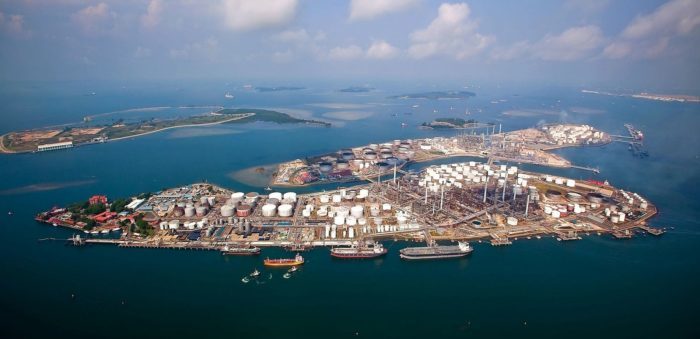Reuters reports that Royal Dutch Shell is under discussion for the installation of solar panels to power its Bukom refining site in Singapore. The Bukom manufacturing site includes a 500,000 barrels-per-day refinery, Shell’s largest wholly owned refinery.
Specifically, Shell’s spokeswoman quoted to Reuters that they are thinking of the potential of installing solar panels at their site, as part of Shell’s plan on improving energy efficiency, while also reducing their carbon footprint.
In mid May, Shell stated that it will take responsibility for decreasing the net carbon impact from the fuels it produces, taking responsibility even for the emissions its customers produce when they burn oil and gas in their cars and homes; In the meantime, Shell announced its green investment plan in reducing CO2 emissions, in an attempt to protect the environment.
[smlsubform prepend=”GET THE SAFETY4SEA IN YOUR INBOX!” showname=false emailtxt=”” emailholder=”Enter your email address” showsubmit=true submittxt=”Submit” jsthanks=false thankyou=”Thank you for subscribing to our mailing list”]
On a global scale, the company installs photovoltaic panels on the roof of seven lubricant plants in China, India, Italy, Singapore and Switzerland, whereas they also think of solar installations on other sites in Singapore.
Shell’s Tuas plant, located in Singapore, has been already equipped with the first and largest of the three Shell solar farms that will begin operations the next month. The solar farm is expected to produce 3,300 megawatt hours of renewable energy annually.
The company aspires that the solar energy will help power operations at the Tuas lubricants plant and that will also prevent a third greenhouse gas emissions from the plant’s electricity.
Concluding, the oil major further noted that Pandan and Jurong Island, Shell’s sites, are expected to begin operations in late 2019 and early 2020, respectively.




























































